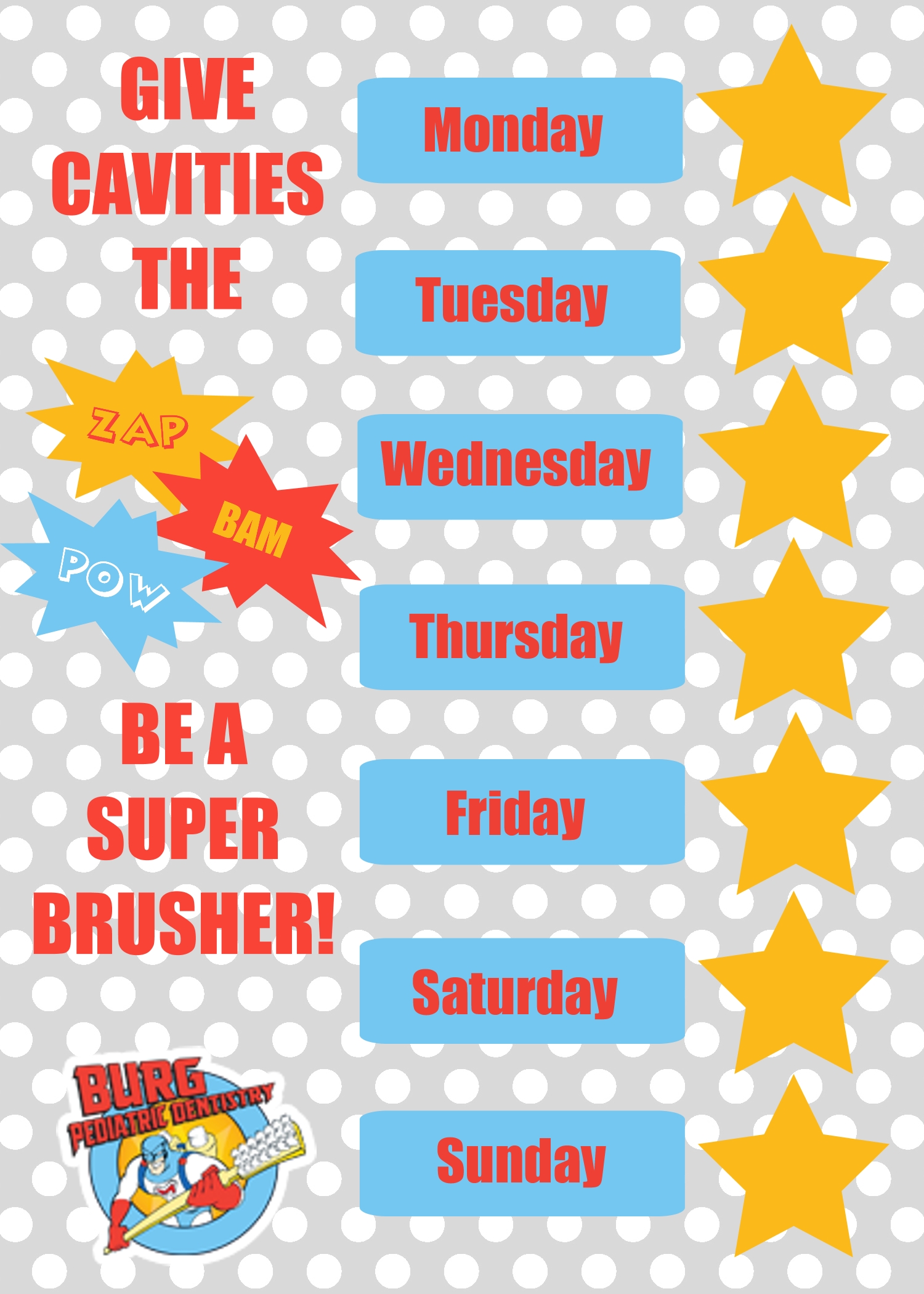Getting Your Child Excited About Oral Health
Does your toddler dislike brushing their teeth? Does your preteen say they are brushing, but you find their toothbrush is bone dry? Many parents struggle with their children when it comes to brushing and flossing. Dental decay has become more prevalent than childhood asthma and can cause tremendous physical and emotional pain for a child. With proper tooth brushing and flossing, decay and gum disease are preventable. There is no such thing as soft teeth doomed for decay.
Here are some suggestions to help get them motivated about keeping their smiles healthy:
1. Start with their first tooth.
Emphasize the importance of brushing as soon as your child grows their first tooth, and start flossing when teeth start touching.
2. Use a routine.
Encourage brushing and flossing at the same times every day to help create a positive habit and make forgetting less likely. Putting a note on the bathroom mirror as a reminder can help as well. Everyone should brush at least twice a day for two full minutes (a timer is great to have) and floss daily. You may also need to brush after a sticky meal or sugary snack to reduce risk of decay. Use a fluoride rinse before bed to help keep the “sugar bugs from making holes in our teeth”.
3. Lead by example.
Children will not see the importance in caring for their teeth if they don’t see you taking the same care. Make time to brush and floss together, this way your child will not rush through the process.
4. Take turns brushing.
The ADA recommends parents help brush their child’s teeth until age 9. This may come as a shock, but the idea is most children do not have the proper dexterity (or attention span) to thoroughly brush their teeth. Let them brush first to build their skills and confidence, then follow up and brush the more difficult areas. After age 9 it is still important to check and make sure your child is brushing well, in particular around the gum line which is often missed.
Positive reinforcement is an effective way to motivate your child to brush and floss using positive rewards instead of negative punishments.
A child is more likely to be willing to brush their teeth if it is promoted as a happy experience. Try acting like a superhero who “fights off bad mouth monsters that hurt our teeth”! Avoid scolding for not brushing well and always offer to help.
Here are some ideas for positive reinforcement:
1. Let kids pick out their toothbrush and paste.
It can be very exciting to pick out a toothbrush with their favorite character or even one that lights up! Kids can be picky when it comes to flavors so it helps to let them decide which to try. Set aside a time for a special trip to the store for some positive reinforcement about their oral health. Remember to change out toothbrushes every 3 months or after being sick.
2. Use a game or tooth brushing chart.
Print a tooth brushing chart from the internet (or make your own!) and award stickers to keep track of brushing habits, leading to a reward when completed. There are also many interactive games and videos found online by a simple search. You can help teach correct brushing technique to toddlers by encouraging them to brush like the wheels of a choo choo train, using a circular motion over the teeth and gums, or see who can make the most bubbles while brushing.
3. Explain WHY!
Most kids understand the concept of needing to wash their hands to remove germs to prevent getting sick, but they don’t understand germs are also in their mouths. By explaining brushing is similar to washing hands, they will learn removing all the germs from their mouth can prevent their teeth and gums from getting sick.
4. Associate healthy foods with a healthy mouth.
We know too much candy will cause cavities, but it is not just candy we need to worry about. Promote healthy snacks for healthy teeth and body! Avoid snacks that are sticky, like dried fruit, and those that have high carbohydrate and sugar content, including soda and sports drinks. Be aware that even diet drinks contain high levels of acids which are harmful to your child’s teeth!
5. Visit the dentist as early as possible.
It is recommended children see a dentist starting at age 1, providing parents and guardians a chance to learn how to care for their child’s teeth and proper nutrition for a healthy mouth. Starting around age 3, most children allow dental professionals to do a full examination and cleaning. The earlier children are introduced to dental tools the less scared they will be of them. Dr. Berry and her team use fun names for each tool, show young patients how tools work and most importantly –never pressure them into doing anything they are not ready for! We understand many adults can be anxious when visiting the dentist, and recommend trying to avoid passing those fears to your child if possible.
Helping your child establish healthy oral hygiene habits at a young age will encourage a lifetime of healthy smiles and a healthy body!


